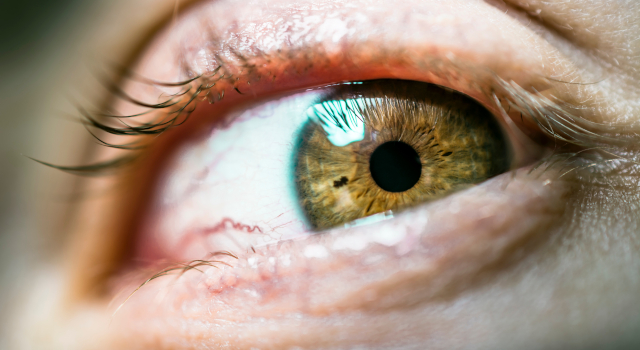Macular degeneration is a sight-threatening eye disease that affects about 15 million people in the United States today. Untreated, it can severely damage the macula, the part of the eye that provides detailed central vision.
Fortunately, our Mt Pleasant eye care team offers advanced optometric technology in the form of Optical Coherence Tomography, or OCT, for the early detection and treatment of macular degeneration.
This imaging scan uses light waves to take detailed images of the eye that help your optometrist diagnose macular degeneration and monitor the effectiveness of treatment.
How OCT Can Help Detect and Treat Macular Degeneration
OCT is a quick, safe, and noninvasive way to detect macular degeneration. Experts consider it the gold standard in diagnosing diseases affecting the retina. This is because OCT scans allow your eye doctor to view images of the retina and macula in more detail than ever before, showing changes to the retina and biomarkers that may indicate macular degeneration, including:
- Signs of bleeding in the eye
- Small deposits of protein and lipids, known as drusen, collecting under the retina
- Presence of new or abnormal blood vessels
- Abnormalities in the structure of the retina
Doctors may use OCT scans to diagnose macular degeneration and monitor how the treatment is working.
After an eye exam with OCT, you’ll usually be able to resume your normal activities immediately, unless your eye exam requires the use of dilating drops to give the eye doctor a wider view inside the eye. In this case, your eyes will be light-sensitive and your eyesight will be blurry for up to a few hours following the OCT before you can go back to normal activities.
Want to learn more about the dangers of macular degeneration and how OCT can help? Come visit our Mt Pleasant eye doctors at Family Vision Care, or give us a call at 843-881-2492 today.
Q&A
Can macular degeneration be cured?
No. Macular degeneration can’t be cured, and vision damage caused by it often can’t be reversed. That’s why it’s crucial to detect it early with regular comprehensive eye exams and with the assistance of OCT scans. Early treatment can prevent extensive vision loss and keep macular degeneration from getting worse.
Are macular degeneration injections covered by Medicare?
Certain injected drugs have been proven to effectively treat macular degeneration. According to medicare.gov, as of August of 2022, these and other treatments for macular degeneration are covered through Medicare Part B. Once you’ve met the deductible, you will only pay 20% of medication and doctor fees.

